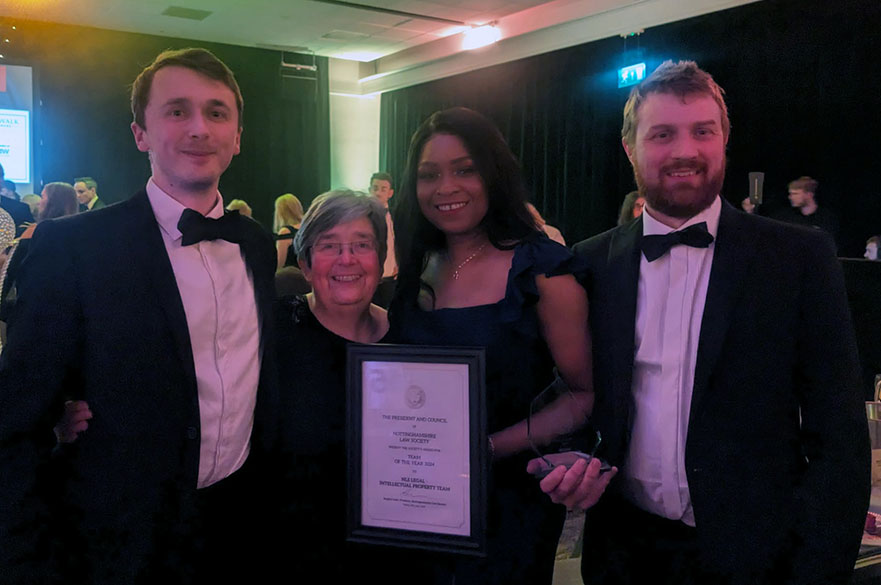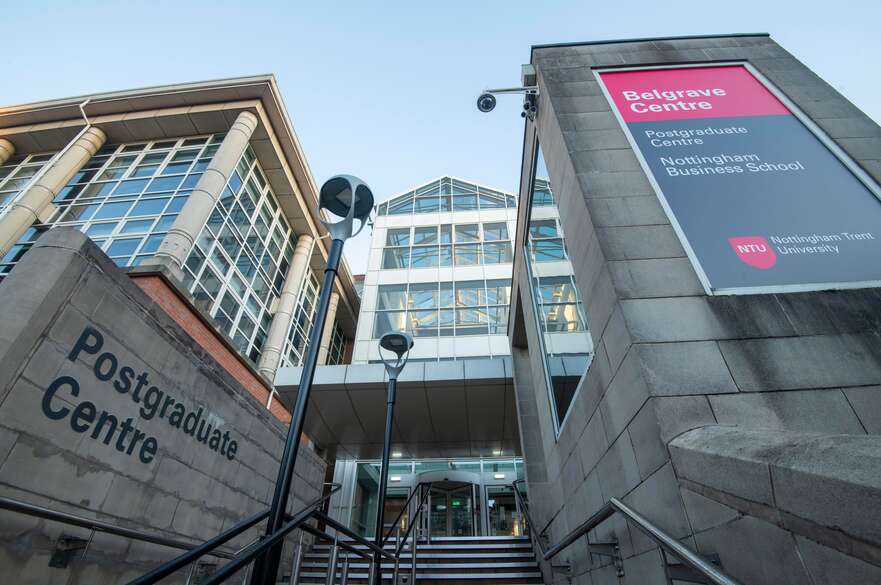Inconsistent and conflicting parental support impacting quality of life for trans and gender diverse youth
Quality of life for young trans and gender diverse (TGD) people is being impacted by inconsistent and conflicting parental support, according to research led by Nottingham Trent University (NTU) with the University of Brighton.

Created in partnership with the charity Mermaids, the study questioned 140 young TGD people on their experiences of parental support, as well as assessing their happiness in different areas of their lives – such as home, school and work – and their overall life satisfaction.
The findings showed a positive relationship between parental support and quality of life, but consistent family support was seen to be rare.
Many of the participants described how support from their parents could feel conflicting, confusing, and inconsistent, leaving them feeling unworthy and isolated.
The young people gave examples of partial support, such as parents who were relaxed about their gender identity in the home, but not in public; those who believed it was something they would grow out of; or those who were aware of their child’s gender identity but did not acknowledge or validate it. Many of them also felt as if their gender identity was influenced and controlled by their parents.
Nevertheless, participants also acknowledged that their parents made unintentional mistakes when it came to demonstrating their support and accepted this as part of the journey for their parents. These mistakes were often seen to be a result of misinformation and a lack of education and knowledge about gender issues.
Many accepted that the views of their parents were a ‘work in progress’ and persevered with positive outcomes - finding that their parents changed their opinion and became more accepting once they were educated about gender diversity.

The study was carried out by Dr Beth Jones, senior lecturer in Health and Social Psychology at NTU’s School of Social Sciences, with Dr Abby Barras, critical social scientist within the School of Humanities and Social Science at the University of Brighton.
Dr Jones said: “Quality of life was much better for young people whose parents demonstrated solidarity – they felt happy, secure and empowered. However, we also found that parental support was not always black and white, rather it was conditional, inconsistent and not always obvious. This means that young people find themselves avoiding rejection and having to choose which aspects of support are of most value to them in order to remain living at home.
“Education can be transformative but we saw that parents needed to be ready and open to change for it to be effective. This requires patience and perseverance from young people, which can be very isolating and impact on their feelings of worthiness.”
Dr Barras added: “Our findings suggest that there needs to be more support in place to prepare TGD youth for the complexities of these challenging relationships and to help them navigate their way through confusing or conflicting support.
“Organisations offering support to young TGD people and their families should ensure information and resources are easily available online, evidence-based and affirmative.”
Lauren Stoner, Mermaids CEO, said: “Mermaids knows firsthand from our service users how vital it is that home is a safe, supportive, and welcoming environment for trans young people, where their pronouns are respected, and they are able to explore their identity.
“We understand how important it is that parents and professionals working with young people feel empowered with the right education and tools to support them on their journey, especially in the midst of an increasingly transphobic social and political UK landscape.
“Mermaids is proud to support research which reinforces the importance in parental support in securing positive outcomes for trans young people.”
Read the paper online: https://www.tandfonline.com/action/doSearch?AllField=Barras&SeriesKey=wijt21
-
Notes for editors
Press enquiries please contact Helen Breese, Public Relations Manager, on telephone +44 (0)115 848 8751, or via email.
About Nottingham Trent University
Nottingham Trent University (NTU) received the Queen’s Anniversary Prize for Higher and Further Education in 2021 for cultural heritage science research. It is the second time that NTU has been bestowed the honour of receiving a Queen’s Anniversary Prize for its research, the first being in 2015 for leading-edge research on the safety and security of global citizens.
The Research Excellence Framework (2021) classed 83% of NTU’s research activity as either world-leading or internationally excellent. 86% of NTU’s research impact was assessed to be either world-leading or internationally excellent.
NTU was awarded The Times and The Sunday Times Modern University of the Year 2023 and ranked University of the Year in the Whatuni Student Choice Awards 2023. It was awarded Outstanding Support for Students 2020 (Times Higher Education Awards), University of the Year 2019 (Guardian University Awards, UK Social Mobility Awards), Modern University of the Year 2018 (Times and Sunday Times Good University Guide) and University of the Year 2017 (Times Higher Education Awards).
NTU is the 5th largest UK institution by student numbers, with approximately 40,000 students and more than 4,400 staff located across five campuses. It has an international student population of 7,000 and an NTU community representing over 160 countries.
Since 2000, NTU has invested £570 million in tools, technology, buildings and facilities.
NTU is in the UK’s top 10 for number of applications and ranked first for accepted offers (2021 UCAS UG acceptance data). It is also among the UK’s top five recruiters of students from disadvantaged backgrounds and was the first UK university to sign the Social Mobility Pledge.
NTU is ranked the second most sustainable university in the world in the 2022 UI Green Metric University World Rankings (out of more than 900 participating universities).
- Category: Press office; Research; School of Social Sciences


